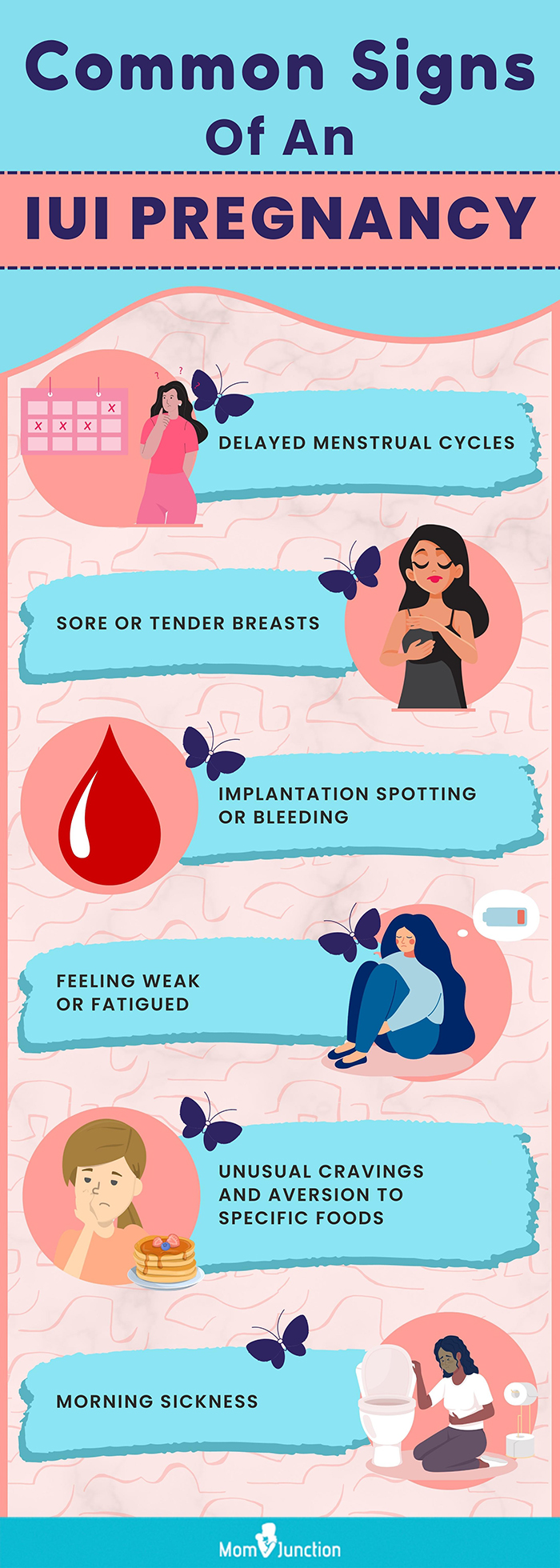
Pregnancy Symptoms After IUI: A Comprehensive Guide
Introduction
Intrauterine insemination (IUI) is a fertility treatment that involves placing sperm directly into the uterus. It is often used to treat infertility in women who have difficulty conceiving naturally. After IUI, many women experience a range of symptoms that can be indicative of pregnancy. Understanding these symptoms can help women identify a potential pregnancy and make informed decisions about their healthcare.
Early Pregnancy Symptoms
Early pregnancy symptoms can appear as early as a few days after IUI. These symptoms may include:
- Implantation bleeding: This is light bleeding or spotting that occurs when the fertilized egg implants in the uterine lining. It usually occurs 6-12 days after IUI.
- Breast tenderness: The breasts may become sore, swollen, or tingly.
- Nausea: This is a common symptom of early pregnancy, often referred to as "morning sickness."
- Fatigue: Women may experience increased fatigue or exhaustion.
- Frequent urination: The urge to urinate may become more frequent as the uterus expands.
- Mood swings: Emotional changes, such as mood swings or irritability, can be a sign of pregnancy.
Later Pregnancy Symptoms
As the pregnancy progresses, more noticeable symptoms may appear. These symptoms may include:
- Abdominal bloating: The abdomen may become swollen or bloated as the uterus grows.
- Weight gain: Weight gain is a normal part of pregnancy, especially in the second and third trimesters.
- Constipation: The increased levels of progesterone during pregnancy can slow down digestion, leading to constipation.
- Back pain: As the uterus expands, it can put pressure on the back, causing pain.
- Leg cramps: Leg cramps are a common complaint during pregnancy.
- Varicose veins: These are swollen, enlarged veins that can appear on the legs or feet.
Symptoms That May Not Indicate Pregnancy
It is important to note that not all symptoms experienced after IUI are necessarily indicative of pregnancy. Some symptoms may be related to the IUI procedure itself or other factors. These symptoms may include:
- Pelvic pain or cramping: This is a common side effect of IUI and usually subsides within a few days.
- Spotting: Light spotting can occur after IUI due to the stimulation of the cervix.
- Headaches: Headaches are a common symptom of IUI and can be related to hormonal changes or stress.
- Bloating: Bloating can be a side effect of the IUI procedure or a symptom of early pregnancy.
When to See a Doctor
If you experience any of the following symptoms after IUI, it is important to see a doctor promptly:
- Severe abdominal pain or cramping
- Heavy bleeding or clotting
- Fever or chills
- Difficulty breathing
- Chest pain
These symptoms may indicate a potential complication, such as an ectopic pregnancy or infection.
Confirmation of Pregnancy
The most accurate way to confirm pregnancy after IUI is through a blood test that measures the levels of human chorionic gonadotropin (hCG). This hormone is produced by the placenta after implantation. A positive hCG test usually indicates pregnancy.
Conclusion
Understanding the potential pregnancy symptoms after IUI can help women identify a potential pregnancy and make informed decisions about their healthcare. While some symptoms may be indicative of pregnancy, it is important to consult a doctor to confirm a pregnancy and rule out any potential complications.